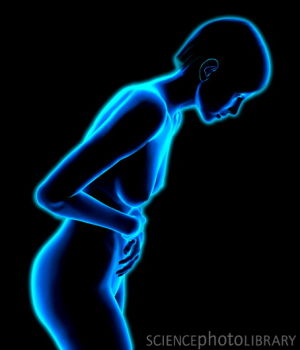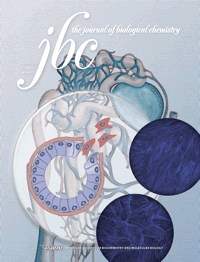 近日来自同济大学附属第十人员医院的研究人员在新研究中深入解析了炎性肠病的“首恶分子”——白介素-23(IL-23)引发细胞“内乱”的分子机制,相关研究论文“Interleukin-23 suppresses IL-10 in the intestine of inflammatory bowel disease”在线发表在美国生物化学权威杂志《生物化学期刊》(Journal of Biological Chemistry) 上。
近日来自同济大学附属第十人员医院的研究人员在新研究中深入解析了炎性肠病的“首恶分子”——白介素-23(IL-23)引发细胞“内乱”的分子机制,相关研究论文“Interleukin-23 suppresses IL-10 in the intestine of inflammatory bowel disease”在线发表在美国生物化学权威杂志《生物化学期刊》(Journal of Biological Chemistry) 上。
领导这一研究的是同济大学附属第十人民医院消化疾病临床医学中心的刘占举教授,其长期从事消化系疾病包括炎症性肠病、肝脏病以及自身免疫性疾病的病例损伤机制研究,以其突出的研究成果荣获比利时Flemish政府胃肠病学会青年研究奖,美国克罗恩病和溃疡性结肠炎基金会青年研究奖等奖励。已发表科研论文200余篇,其中约40篇论文被SCI收录。
炎症性肠病(IBD)是一种病因尚不十分清楚的慢性非特异性肠道炎症性疾病,包括溃疡性结肠炎(UC)和克罗恩病(CD)。炎症性肠病的症状与肠道感染性疾病类似,患者大多有腹痛、腹泻、黏液便、血便等症状。唯一的不同在于引发炎症的关键因素不同,前者是细菌、病毒等致病微生物;后者则是自身免疫反应。对原本和谐的机体来说,自身免疫反应不啻于一场“内乱”。本该一致对外的免疫细胞和免疫物质,转而攻击正常的肠黏膜,后果自然十分惨烈。目前临床使用较多的是氨基水杨酸类药物,通过减轻炎症反应来起到缓解症状的作用。重症患者单单使用氨基水杨酸类药物收效甚微,往往还要加用糖皮质激素。患者长期使用激素药的后果是不得不同时承受疾病和药物副作用的双重煎熬。
自身免疫引发的炎症反应只是疾病的表象,只有从细胞甚至分子水平揭示病理过程,才能为临床有效治疗指明方向。在此前的研究中,刘占举教授领衔的团队揭示了IL-23是引发肠黏膜细胞“内乱”的“首恶分子”。
在新文章中,刘占举教授和苏婧玲医师等通过进一步研究发现,在炎症性肠病患者肠黏膜组织内白介素23(IL-23)阳性细胞表达显著升高,IL-23进一步抑制肠黏膜组织内IL-10和IgA的表达,阻止肠黏膜屏障恢复,从而造成肠黏膜通透性改变,导致肠黏膜炎症发生。
本研究进一步证实IL-23在炎症性肠病发生过程中起着重要的促炎症效应,为将来靶向阻断IL-23生物学活性治疗克罗恩病和溃疡性结肠炎奠定了重要的理论基础。

 Interleukin (IL)-23 suppresses IL-10 in the intestine of inflammatory bowel disease
Interleukin (IL)-23 suppresses IL-10 in the intestine of inflammatory bowel disease
Zhanju Liu, Bai-Sui Feng, Shao-Bo Yang, Xiao Chen, Ping-Chang
Background and aims: The interleukin (IL)-10 plays an important role in the immune regulation in the intestine. The immune deregulation is suggested in the pathogenesis of inflammatory bowel disease (IBD). This study aims to elucidate the role of interleukin (IL)-23 in the suppression of IL-10 in the IBD intestinal mucosa.
Methods: Surgically removed colon specimens were obtained from 16 IBD patients. The expressions of IL-10, IL-23 and IgA in the specimens were examined at the protein and gene transcriptional levels. The gene transcription of IL-10 was assessed by chromatin immunoprecipitation assay and promoter accessibility assay.
Results: The levels of IgA and IL-10 were significantly lower, while the levels of IL-23 were higher, in IBD specimens than that in normal controls. The levels of IgA and IL-10 were negatively correlated with the infiltration of inflammatory cells in the IBD mucosa. The production of IL-10 by lamina propria mononuclear cells was less in the IBD group than the control group that could be enhanced by blocking IL-23. The gene transcription of IL-10 was significantly suppressed in CD4+ T cells of IBD mucosa; the phenomenon could be replicated in vitro by adding IL-23 in the culture of polarized Th2 cells.
Conclusions: Overexpression of IL-23 in the intestinal mucosa suppresses the production of IL-10 that weakens the defensive barrier by reducing the production of IgA in the gut.
文献链接:https://www.jbc.org/content/early/2011/12/12/jbc.M111.304949







